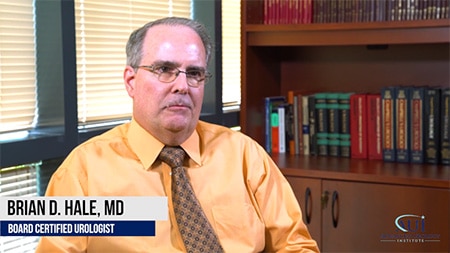Risk Factors of Prostate Cancer
 For many men, their prostate cancer will not be aggressive and the symptoms will be manageable. In these cases, urologists rely on active surveillance as the best first treatment option. Rather than risk possibly harmful treatments on a non-aggressive cancer, the urologist will monitor the cancer with routine checkups. Other treatment options will be considered if the cancer becomes more aggressive.
For many men, their prostate cancer will not be aggressive and the symptoms will be manageable. In these cases, urologists rely on active surveillance as the best first treatment option. Rather than risk possibly harmful treatments on a non-aggressive cancer, the urologist will monitor the cancer with routine checkups. Other treatment options will be considered if the cancer becomes more aggressive.
If the prostate cancer is aggressive and immediate treatment is needed, urologists and their patients have a wide range of treatment options to choose from. The treatment option that works best will depend on a number of factors such as the cancer’s size and growth, and the patient’s age and health. Surgery to reduce the size of the cancer is often preferred for slow growing cancers. For more aggressive cancers, urologists may choose chemotherapy or radiation to kill the cancer cells as quickly as possible.
Although there are many possible causes of prostate cancer, there are certain factors that are known to raise the risk of its occurance. The first risk factor is age. As men get older, their likelihood of developing prostate cancer increases. African-American men have a greater genetic risk for developing an aggressive prostate cancer, while family history and obesity are also factors.
Early detection is the key to a successful treatment. Because prostate cancer is age related, it is recommended to most men that they begin having annual prostate checkups at age 50. African-American men and those with a family history of this cancer should be checked annually starting at age 40. Life saving screenings and successful treatments of prostate cancer happen every day at the Advanced Urology Institute, where trusted urologists like Brian C. Hale, MD guide their patients from diagnosis to recovery.

